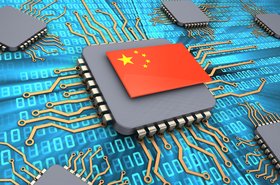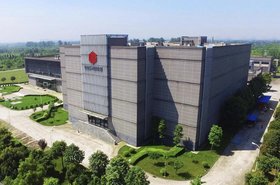China has purchased around $40 billion worth of chip manufacturing products in an effort to shore up its semiconductor supply chain in the wake of US sanctions.
According to a report from Bloomberg, imports of machinery needed to produce semiconductors rose by 14 percent in 2023 to almost $40bn. According to calculations carried out by the publication, this represents the second-largest import valuation for this technology since 2015.
This tallies with figures from an earlier report from Bloomberg that found chip imports to China reaching a historic year-over-year decrease, with the shipment volume to the country declining by 10.8 percent, likely due to the country’s efforts to increase its domestic semiconductor manufacturing capabilities.
The US is currently engaged in a trade war with China and has imposed restrictions on the export of chips to the country in order to stop it from having access to advanced technology that could be used for military modernization and human rights abuses.
The rules also prohibit US businesses from trading with non-US companies that are exporting the restricted technology to China, which means organizations such as Nvidia, AMD, Arm, TSMC, and ASML are now prohibited from selling to what was previously a significant market for them.
To comply with the export rules, Nvidia has been developing less powerful versions of their existing chips for sale in China, including the HGX H20, L20 PCIe, and L2 PCIe chips. However, other organizations are simply having to take the revenue hit as the sanctions continue to ramp up.
At the start of the year, lithography company ASML had an export license revoked after the US placed pressure on the Dutch government to suspend what had been the legitimate sale of two lithography systems to China. ASML is the sole supplier in the world of extreme ultraviolet lithography (EUV) photolithography machines that are needed to make the most advanced 3nm and 5nm chips.







